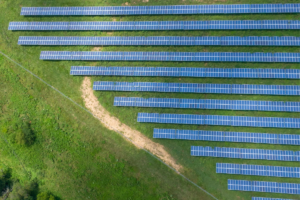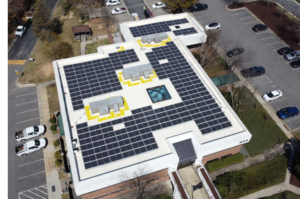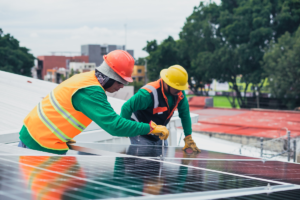Solar Equipment Leasing for Tax Exempt Organizations in North Carolina
 Organizations in North Carolina can now lease solar photovoltaic equipment for a fixed cost per month from companies approved to offer leasing by the North Carolina Utilities Commission (NCUC). There are currently nine companies approved by the state’s Utilities Commissions to provide solar leases, though only one lessor, Eagle Solar and Light along with its partner Sunwealth, has active solar leases operating in the state.
Organizations in North Carolina can now lease solar photovoltaic equipment for a fixed cost per month from companies approved to offer leasing by the North Carolina Utilities Commission (NCUC). There are currently nine companies approved by the state’s Utilities Commissions to provide solar leases, though only one lessor, Eagle Solar and Light along with its partner Sunwealth, has active solar leases operating in the state.
Solar leases were first authorized in North Carolina through HB 589, which also included a number of requirements for companies offering solar leases, such as contractual provisions between the company and the customers, disclosure agreements and record-keeping requirements. “Any company or municipality interested in offering solar leases has to be authorized by NCUC first,” said David Sarkisian, Senior Policy Project Manager for the NC Clean Energy Technology Center (NCCETC).
Eagle Solar and Light (ESL) is the first company that received approval from NCUC to offer leasing. By leasing a solar array through companies like ESL, customers can benefit from clean energy without taking on the effort or expense of installing, owning and operating a solar array themselves. Many customers have gone cash flow positive in their first year of leasing solar equipment, according to ESL’s website.
The cost of the monthly lease is fixed at a lower price compared to average monthly electricity costs, so it’s a cash flow positive arrangement for the lease customer. “Essentially, after the cost of the solar equipment lease is covered, the electrons generated and used on site are free of charge,” said NCCETC’s Elizabeth Bowen.

Orange Water and Sewer Authority (OWASA), a recipient of Duke Energy’s NC Solar Rebate, is one organization with a solar lease in NC. Mary Tiger, Strategic Initiatives Manager with OWASA, has been involved with innovative solar leases which contribute to achieving the organization’s energy management goals, even without budgeting for capital expenditures. This approach has resulted in OWASA reducing their use of purchased electricity by 6% and breaking even financially each month.
Tax exempt organizations such as state and local governments are typically unable to directly benefit from the 26% federal investment tax credit available to businesses which directly purchase a solar photovoltaic system. By leasing solar equipment from qualified leasing companies, OWASA solar photovoltaic projects can take advantage of tax benefits they would otherwise not be eligible to receive, according to Tiger.
 Another challenge for solar equipment owners is the ongoing maintenance of the system. Leasing solar equipment “allows us to maintain focus on our core mission while our private partner is responsible for the design and maintenance of the system,” explained Tiger.
Another challenge for solar equipment owners is the ongoing maintenance of the system. Leasing solar equipment “allows us to maintain focus on our core mission while our private partner is responsible for the design and maintenance of the system,” explained Tiger.
The Governmental Accounting Standards Board (GASB) in North Carolina issued GASB Statement No. 87, Leases, in June 2017 which created a framework for solar leasing in North Carolina. More recently, in December 2020, a memo from the NC Treasurer addressed the opportunity for solar leasing by state agencies and clarified the conditions for acceptable contracts. This memo coincided with updated GASB lease guidance regarding accounting for lease agreements.
Under the GASB guidance used before 2022, organizations have not been required to report operating lease agreements in their financial statements. GASB 87 replaces the current operating and capital lease categories with a single model for lease accounting based on a definition of leases as contracts that convey control of the right to use a non-financial asset.
Residential, commercial and non-profit customers can also benefit from an added solar incentive through the NC Solar Rebate Program provided by Duke Energy Carolinas and Duke Energy Progress. However, the rebates are awarded on a first-come, first-served basis and the demand for them is exceedingly high each year.
As of the time of this writing, there are no solar leases for state agencies in North Carolina. If you know a state or local government that is interested in learning more about leasing solar equipment, contact Elizabeth Bowen with the NC Clean Energy Technology Center at etbowen@ncsu.edu.